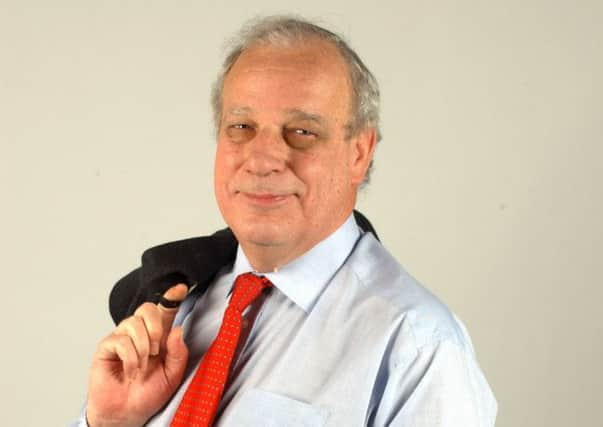Comment: Devil in the detail of massive reports


It was long a standard line of advice to private investors to read a company’s annual report before investing. This still stands if you want to gain a detailed understanding of the nature of the business, its sales and profits performance, its cashflow and balance sheet. A check on the management and directors is also valuable.
But annual reports have now expanded far beyond these core functions. There are large and unwieldy sections on regulatory compliance. There are obligatory internal auditors’ reports in addition to the report of the external auditors. In all too many cases, the pages of detail on directors’ remuneration and emoluments now routinely exceed the description and explanation of the company’s underlying business.
Advertisement
Hide AdAdvertisement
Hide AdMany annual reports now resemble travel brochures, lavishly illustrated and reassuringly expensive, no matter the condition of the business. Reports from stricken banks became so large as to defy the average letter box.
As a young financial reporter in the 1970s I was routinely urged to check the cashflow statement, the chief executive’s comments on trading and, above all, check the auditor’s report. Today all three have become so couched in regulation-compliant prose and legal caveats as to be ambiguous and confusing.
Despite this – and in fact I rather suspect because of it – young financial reporters today approach the annual company report in a more sceptical (if not outright cynical) spirit. The first, and often only, pages to be checked are those on the directors’ pay. And how telling it is that, for all the granularity of detail, the most frequent complaint these days is that the figures journalists have quoted are claimed to be wrong or have been wrongly interpreted.
So I was delighted to read an eloquent denunciation of four decades of annual report tinkering in the latest quarterly newsletter from Personal Assets Trust by Robin Angus. I enjoyed this in particular: “Some sections of annual reports are now reminiscent of nothing so much as the scene in the Marx Brothers’ A Night at the Opera where Groucho, as Otis P Driftwood, tells Chico, as Fiorello: ‘The first part of the party of the first part shall be known in this contract as the first part of the party of the first part shall be known in this contract – look, why should we quarrel about a thing like this? We’ll take it right out, eh?’”
Perils ahead in 2015
Continuing economic growth, falling oil prices, low inflation and interest rate rise anxieties kicked well into the second half of next year: investor prospects for 2015 might even be thought sanguine, were it not for massive political uncertainties ahead.
The two main threats to markets in the year ahead are geo-political: intensifying Russian intervention in the Ukraine, and growing problems with Muslim extremism in the Middle East. But there is a major risk too here at home, with every prospect of a highly fractious political gridlock following the May general election. A strengthening of Ukip representation at Westminster and the likelihood of a substantially enlarged SNP contingent refusing any form of co-operation with the Conservatives suggest a weak and vulnerable Ed Miliband premiership for Labour.
This could prove a potentially inflammatory outcome – and it’s one that may well encourage investors to put more of their savings into fixed-interest bonds on the assumption that these would be a less risky.
But last week brought a warning from the widely-followed fixed-income investor Bill Eigen, head of the Absolute Return and Opportunistic Fixed Income Group at JP Morgan Asset Management. Bond prices, he said, have only one way to go: down. Things are so bad, he told Morningstar’s Emma Wall, that he has never been more nervous as a bond investor in his entire career – which includes the 1994 bond market crash.
Advertisement
Hide AdAdvertisement
Hide AdHe has stepped away from his long-only bond fund and now runs an Absolute Return bond fund for JP Morgan, which can hold large cash positions and short the bond market.
He said a false market has been created in bonds by central banks: “They have broken bond markets. Even when the economy grows and inflation rises, bond yields fall. This should not be the case. Fundamentals no longer drive bond markets – central banks do.”
He is currently 55 per cent invested in cash, so worried is he about the risks to bond markets. “You are going to get to a point soon where long-only bond funds will not make money. You need to be able to short the market and if you don’t have that toolkit you’re out,” he said.
The problem with this, of course, is that many have been calling the top of the bond market for the past four years – and over this period fixed-income investors have enjoyed sizeable profits. But there is a danger here that political deadlock could see international investors steering clear of UK financial assets for a time – government bonds in particular. Arguably, the safer haven in 2015 could prove to be UK equities, and particularly those offering a yield of 3.5 per cent and more. Not for the first time, yield will be a prop to the market.
SUBSCRIBE TO THE SCOTSMAN’S BUSINESS BRIEFING